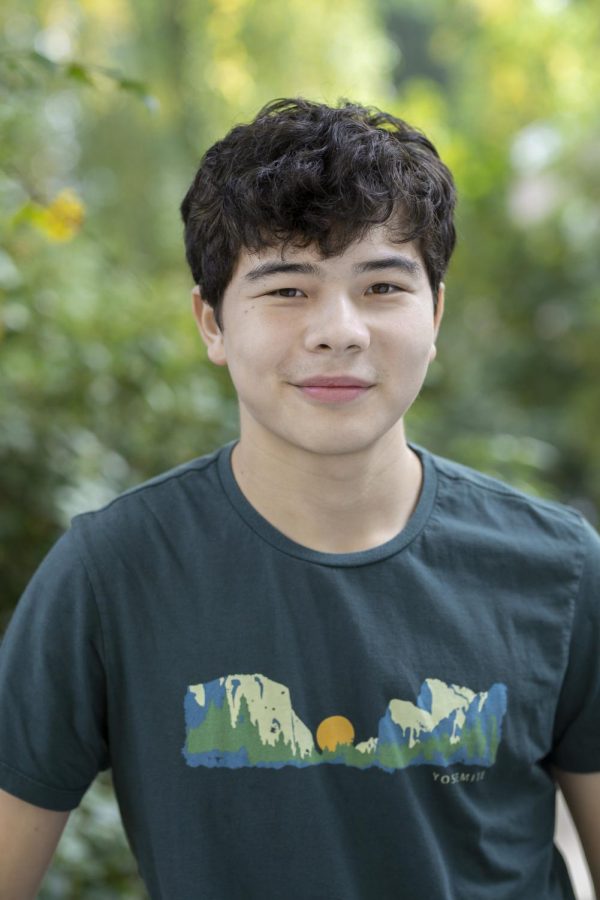Gap Kids
Late-night study sessions, parties, and new friendships typically characterize a college freshman year. Online school and Netflix doesn’t quite live up to that. In hopes of waiting out the pandemic, a higher percentage of recent graduates have been turning to gap years than before. The college counseling office fully supports and encourages gap years as an option for students to mature and learn before college; college counselor Mr. Kranwinkle himself took a gap year to France and thinks of it as one of the best decisions of his life. Mr. Kranwinkle also acknowledges the challenges of planning a gap year… challenges which deter many students from turning their interest into reality.
Under normal circumstances, students would begin planning for a gap year right after sending in their college applications and apply for deferral once they’ve chosen their college. While colleges (especially private ones) tend to support students taking gap years, they still require a sound plan that will help the student grow, said Mr. Kranwinkle. However, because of COVID-19, many Class of 2020 graduates who weren’t initially considering taking gap years decided to apply for one later than usual, a decision that required adaptability and swift planning. Adding to the uncertainty of COVID-19, many recent high school graduates are now living without school structure to guide their interests, a combination that could just as easily result in aimlessness as increased independence. I spoke with three recent Lakeside graduates who were able to make gap years work—Will M. ’20, Mae C. ’20, and Megan M. ’20.
When the three Lakeside graduates I interviewed first made their decisions to take a gap year, none of them had a job or plan entirely in place, so the decision required a leap of faith that things would come together. Though the three people who I spoke with were all considering gap years before the pandemic broke out, their plans were still to attend college next year until they realized school would likely be virtual. Will and Mae were both nudged to “gap” by their parents, who stressed the importance of experiencing college in-person, unhindered by social distancing or masks rather than college through a computer screen. Luckily, after utilizing connections and submitting applications, a plan for the year began to form for each of the grads. Megan took up a full-time job taking care of three young children, as well as becoming involved in an organization working to pass sustainable policies in Washington state. At the same time, Mae moved across the country to Washington, D.C., to work on congresswoman Abigail Spanberger’s re-election campaign, and Will began an internship at an epidemiology lab at the University of Washington. While their jobs seem dissimilar, one common strategy is apparent: stay busy. Without school-imposed deadlines, it’s been crucial to stay active and purposeful by making time for their interests, Megan says. For instance, in addition to their other jobs, Megan has been taking sign language classes twice a week to keep her mind engaged, while Will has started tutoring kids in STEM subjects, as well as playing guitar and producing music.
Despite the disappointments of ruined plans to go to college, each of the graduates that I spoke to had an optimistic, confident view of the year, which they each used for different purposes. For Megan, the year is an opportunity to ground herself before college, think about what to study, and engage her mind in a more self-directed way than in high school. Mae sees the experience as a glimpse into her twenties, with all the excitement and independence of being on her own and living in a new place, without the financial responsibilities, which were taken care of by her parents. Will views the time as a way to delve deeper into his passions and explore new areas of interest that he may want to pursue in college. His internship at the University of Washington has piqued his interest in the particularly timely topic of epidemiology, while his tutoring stint has made him curious about education and teaching.
After a year of self-reliance, college doesn’t seem intimidating anymore, says Mae: “College is the next step [after high school], but you’re not fully independent. I feel like we skipped that and went straight to the living on your own part.” With only an instinct that a self-directed year would be more fulfilling than a year spent on a computer, the three graduates were able to gain independence and explore their passions, figuring it out along the way. These grads gained independence and adaptability by allowing themselves to be spontaneous and divert from the charted course. That’s not to say that planning isn’t useful… but plans can’t always account for global pandemics.
Don't let the name fool you; Stellan Will do the Max, which is also his name (and is preceded by that of his brother). He's a Mountain Man, he's a Lakeside...

